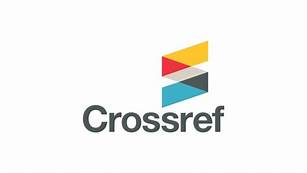Education
Teacher`s ICT training and impact of Teaching-Learning in Primary Education
Mohammad Ashraful Alam Khan
DOI: https://doi.org/10.58718/policyanalysis1120235
Key Words: Primary School, Learning Process, ICT Trained Teacher, ICT Training, ICT Equipment, Quality Education
Abstract
There is an increasing concern among national as well as international development regarding the implementation Situation of ICT in Primary Education. There is a need to move beyond the accumulated facts and figures generated by using both quantitative and qualitative mixed approach research through semi structured interviews as well as classroom observation tools. To achieve this, the present research focuses on the availability of equipment, using digital content in classrooms and teachers’ skill and their training. This study investigated primary school teachers’ perceptions of the barriers and challenges preventing them from integrating ICTs in primary school and how it impacts on the learning process. The participants of this study were head teachers, ICT trained teachers and all the students of the observing classroom from the 5 schools at Brahmanbaria Sadar Upazila. The objective of this study is: 1. To explore the teacher’s self-assessment of their ICT training skills. 2. To determine the impact of the learning on the teaching and learning activities. 3. To identify the challenges in providing ICT teaching for learners. According to the findings of the study primary school teachers are not yet ready to integrate ICTs into their classrooms due to a number of obstacles that include unavailability of ICT friendly classrooms, equipment and webbased resources in the school. The lack of competence of the teachers in understanding the existing ICT training along with the shortage of technical support and proper technological knowledge on how to integrate ICT into their teaching and learning process altogether have also contributed to the inability to integrate ICT properly into the primary school classrooms. It is therefore needed to extend the duration of the existing ICT training programmes and also introduce refresher training courses for those who have received it earlier. Most importantly, all primary school teachers who have not yet received the training should be given ICT training immediately. The study recommends that partnership with public and private sectors is necessary to enable effective training of teachers, ensure ICT friendly classrooms, equipment, web-based resources, connectivity and overall coverage for quality education.
References
1. Anuar, Hedwig and Krzys, Richard . 1987. Asia, libraries in. In A. Kent (Ed.), Encyclopedia of library and information science, 42, pp. 24-127, New York: Marcel Dekker Inc.
2. Becta 2005, Evidence on the progress of ICT in Education. ICT Research. Available on line: Directorate of Primary Education 2011, Third primary education development programme: Annexes. Dhaka: Directorate of Primary Education.
3. Hasan, Sadik. 2014. “ICT Policies and their Role in Governance: The Case of Bangladesh.” SAGE Journals, Science, Technology and Society. 19 (3): 363-381.
4. Islam, Sadequl. 2010. “Access with quality in primary education: Re-inventing Inter- Organizational synergy.” Bangladesh Education Journal, 9 (1):5. Keengwe, Jared, Grace Onchwari, and Patric Wachira. 2008. “Computer Technology Integration and Student Learning: Barriers and Promise.” Journal of Science Education and Technology. 17 (6): 560-565.
5. Khan, Shahadat Hossain, Mahbub Hasan, and Che Kum Clement. 2012. “Barriers to the introduction of ICT into education in developing countries: The example of Bangladesh.” International Journal of Instruction, 5 (2): 61-80. Kumar, Jitender, and Arti Pasricha. 2014. “ICT in Education: Enhancing Teaching and Learning.” Scholarly Research Journal Interdisciplinary Studies. II (X): 935- 946. Mohapatra, Sanjay. 2009. Business Process Automation, 1st ed. PHI Learning: New Delhi.
7. Mohapatra, Sanjay. 2011. Software Project Management. 1st ed. Cengage Learning: New Delhi
8. Nathani, Poonam. 2022, “Guide to curriculum Development: Types, Principles & Process of Curriculum Development.” Available from: iitms.co.in/blog/curriculum-development-models.html
9. Nie, Sen, and Yan Liu. 2011.”The design and application of computer aided instruction courseware” In IEEE 2011 International Conference on Information Management, Innovation Management and Industrial Engineering (ICIII), 1, pp. 453–455.
10. Nielsen 2015, Situation analysis for strengthening the application of ICT in government primary schools, Unpublished report to Save the Children, Dhaka. Bangladesh.





